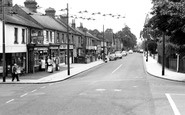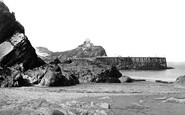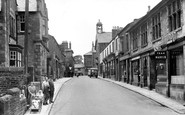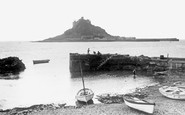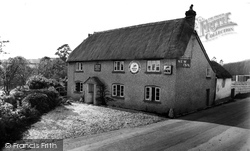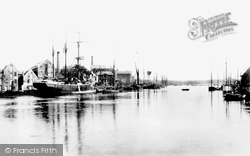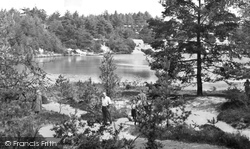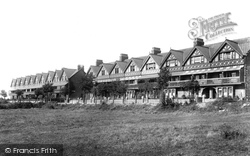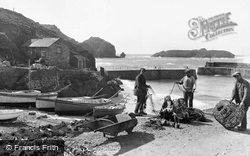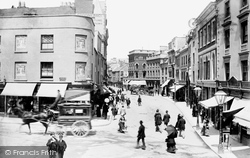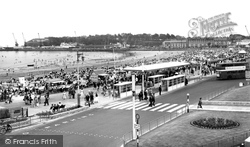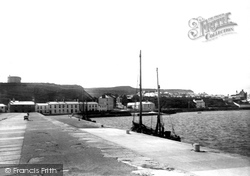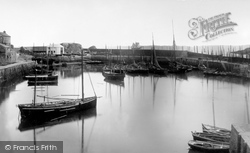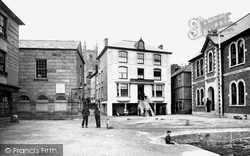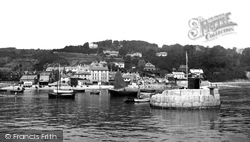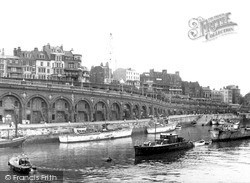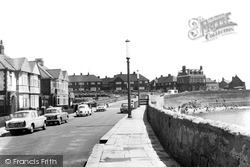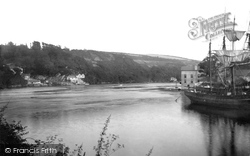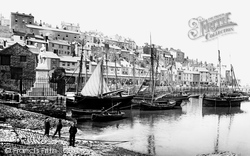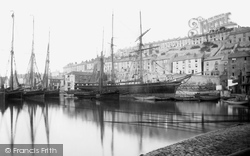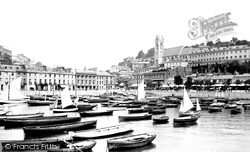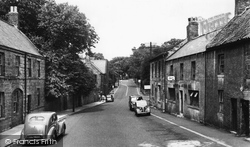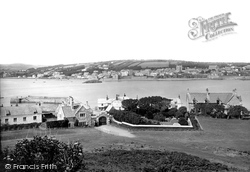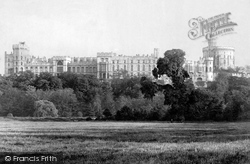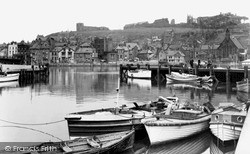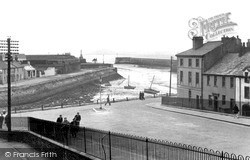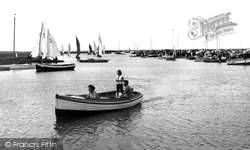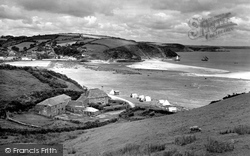Places
1 places found.
Did you mean: arthur ?
Those places high-lighted have photos. All locations may have maps, books and memories.
Photos
4 photos found. Showing results 101 to 4.
Maps
71 maps found.
Books
1 books found. Showing results 121 to 1.
Memories
96 memories found. Showing results 51 to 60.
My Childhood In Wolverhampton 1946 1955
I played in the standing corn stooks behind our house, had my first pony/horse ride at Dixon's farm where my horse went berserk in a potato field, so I was put onto and stayed on a horse lead. I flew my ...Read more
A memory of Wolverhampton by
My Time At Raf Thornaby
I was stationed at RAF Thornaby from March 1954 until early 1957 when I was promoted and posted to RAF North Luffenhan in Rutland in preparation for the Suez campaign, which never came to be. Sadly, that air base ...Read more
A memory of Thornaby-on-Tees in 1954
My Memories Of Tilehurst
I was born in Theale but my parents moved to Tilehurst when I was 3 years of age where we lived at 16a Norcot Road with my grandparents Edith and Harold Goddard and other siblings to my mother Audrey Parsons, my father ...Read more
A memory of Tilehurst in 1940 by
My Memories Of Broadstone
My earliest memories of Broadstone stem from about 1937 when I was five years old. We lived in Southbourne at the time and frequently went to Broadstone at weekends to visit my "aunt Flo" and her family who lived at ...Read more
A memory of Broadstone by
Morning Coffee At Rapparee
Wonderful little beach. As a lad in the late 1940's and early 50's, I was a deckchair boy here, and hundreds of people would walk from town to have a coffee at the cafe at the bottom of Rapparee steps, or spend half ...Read more
A memory of Ilfracombe in 1950 by
Mitchelmores Gardens Duddleston Road Black Lion Lane
I have noticed one or two comments with regard to 'Mitchelmores Gardens' in Duddleston Road/Black Lion Lane. I think that the writers are perhaps a little confused. Mr Mitchelmore was an ...Read more
A memory of Little Sutton by
Mid 1960s Mid 1980s
My parents David & Valerie, and younger brother Roger Angus lived at 'Rosevine' opposite the Rectory. The then vicar, Christopher Leach lived in the Rectory with his wife and children Godfrey and Hilary. Additionally, they ...Read more
A memory of Combpyne by
May Be Its Me And My Brother And Mum
I think that that is my mum Gladys Haigh, and my brother Douglas who is 4 years older than me is beside my mum, I'm the one in the pram I think! We were going to meet my dad Jim Haigh, we used to live Main ...Read more
A memory of High Bentham in 1952 by
Marazion Harbour
Top Tieb, just below Castle Gayer. I've got someone else's postcard shows harbor wall broken off, I have idea it took 2 goes to build harbor, first was washed away, anyone know for certain?
A memory of Marazion by
Lymington In The 1940s
My maternal grandmother and mother were both born in Lymington, my mother attending the grammar school in Brockenhurst (I remember as a small boy her pointing it out to me from the train) In 1944, when the V1 'doodlebugs' ...Read more
A memory of Lymington in 1944 by
Captions
211 captions found. Showing results 121 to 144.
The River Piddle winds beneath the chalk downlands of Dorset, giving its name to several villages along the way before reaching the sea at Poole Harbour.
The town of Poole grew up around the older quays of the great harbour; during these times it was purely functional, catering for mercantile activities, shipping and pottery manufactured from the
Centuries ago, an arm of the sea came up to Wareham from what is now Poole Harbour.
The nearness of Barry Station and the view from the balconies over the Old Harbour were the main selling points for prospective purchasers.
Small inshore fishing boats are drawn up at the back of the harbour, where two jetties were built in the 1890s to provide shelter and encourage this local industry.
The older anchorages of Sutton Harbour and Stonehouse, with the greater expanse of the Hamoaze and Plymouth Sound beyond, created a perfect naval base long before the new town of Devonport was founded.
Here we see the southern end of the sands on a very crowded day in the 1950s, with the cranes of the harbour and Nothe Fort in the distance.
It is difficult to believe that less than twenty years later, the harbour was the scene of nationalist gun-running.
Boats can still operate in and out of this harbour when weather conditions close those that face the prevailing south-westerlies.
Fowey, the 'Troy Town' popularised by the Victorian writer Quiller Couch, is blessed with a spacious natural harbour, and was once one of the foremost seaports of Britain.
This is the inner pool of the Cobb Harbour; we are looking north-westwards to High Cliff, prominent on the wooded hilltop (left).
number of maritime business premises to Military Road, which has been widened considerably; and this post-war photograph also shows a number of ex- Naval converted motor boats moored in the harbour
The large building on the right is the Harbour of Refuge - a splendid name for a seaside public house! Children play on the beach below the sea wall.
The estuary provides a sheltered natural harbour, and in the past schooners such as the one here were a common sight.
Its natural harbour, sheltered by the limestone cliffs, made it ideal for settlement. The Saxons were here, and Celtic and Roman remains have been found nearby.
Iron Age dwellers built a fortification on Berry Head, and Celtic inhabitants would have collected salt and fish where the harbour now stands.
St John's Church, situated dramatically above Torquay harbour, was built in limestone excavated from its own site by G E Street in 1861.
After the harbour had become unusable, a number of warehouses and granaries were redeveloped. The Marine House Hotel was built as a granary and later converted into a vicarage.
This unusual view shows the Mount's estate houses and a harbour wall, with Marazion stretched out along the coast and Trencrom Hill rising behind on the extreme left.
Swords and armour bedeck the walls.
This view of the Upper Harbour in the ancient port of Whitby situated where the River Esk runs into the North Sea has hardly changed since the 1950s.
Low tide in the harbour, which was another of the creations of Colonel Senhouse in the mid 18th century.
Its capacious natural harbour, protected from the sea by the long spit of sand, Blakeney Point, attracted coastal trading vessels until the early years of this century.
Pentewan village is on the far side of the beach, and two sailing boats set off from the harbour pier.
Places (1)
Photos (4)
Memories (96)
Books (1)
Maps (71)

